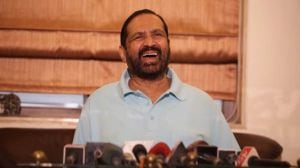The colour of money
Everybody wants it. Nobody understands it. Money is the great taboo.

Everybody wants it. Nobody understands it. Money is the great taboo. People just won8217;t talk about it. And that is what leads you to subprime. Take the greed and the financial misrepresentation out of it, and the root of this crisis is massive levels of financial illiteracy.8221;
For years John Bryant has been telling anyone who will listen about the problems caused by widespread ignorance of finance. That many poor people do not have a bank account is at the heart of 8220;the civil-rights issue of the 21st century8221; says Mr Bryant. He calls the attempt to help people help themselves out of poverty through financial literacy and economic opportunity the 8220;silver-rights movement8221;.
The council is not short of expertise. It is starting a pilot programme to work out how to connect the 8220;unbanked8221; to financial institutions. America is not the only country where doing something about the widespread ignorance of personal finance is on the agenda. Governments from Britain to Russia are declaring their commitment to financial education. Meanwhile, on March 17, a new campaign to promote financial literacy in the developing world was launched at a conference in Amsterdam. Called Aflatoun 8220;Explorer8221;, after a cartoon character based on a Bollywood star, it is the brainchild of Jeroo Billimoria, a social entrepreneur who previously worked with street children in India. Among other things, she founded a successful emergency 24-hour telephone service, called Childline. She found that many of the children she helped were entrepreneurial and became convinced that, given better education, they would have done well in life.
Ms Billimoria addresses herself to children aged between 6 and 14, whom most educators consider too young to understand money. Having begun with experiments in rural India, her non-profit organisation, Child Savings International, has piloted the Aflatoun course in 11 countries, including Argentina, South Africa, Vietnam and Zimbabwe, since 2005. It is now extending the course to 35 developing countries. Only recently, after suggestions from the Dutch central bank and the European Commission, has Ms Billimoria started to adapt Aflatoun for rich countries such as Britain, the Netherlands, Ireland and perhaps America. 8220;My mistake. I never thought it would be needed in developed countries,8221; she says. If only.
Excerpted from 8216;Getting it right on the money8217; in The Economist, April 5
- 01
- 02
- 03
- 04
- 05






























